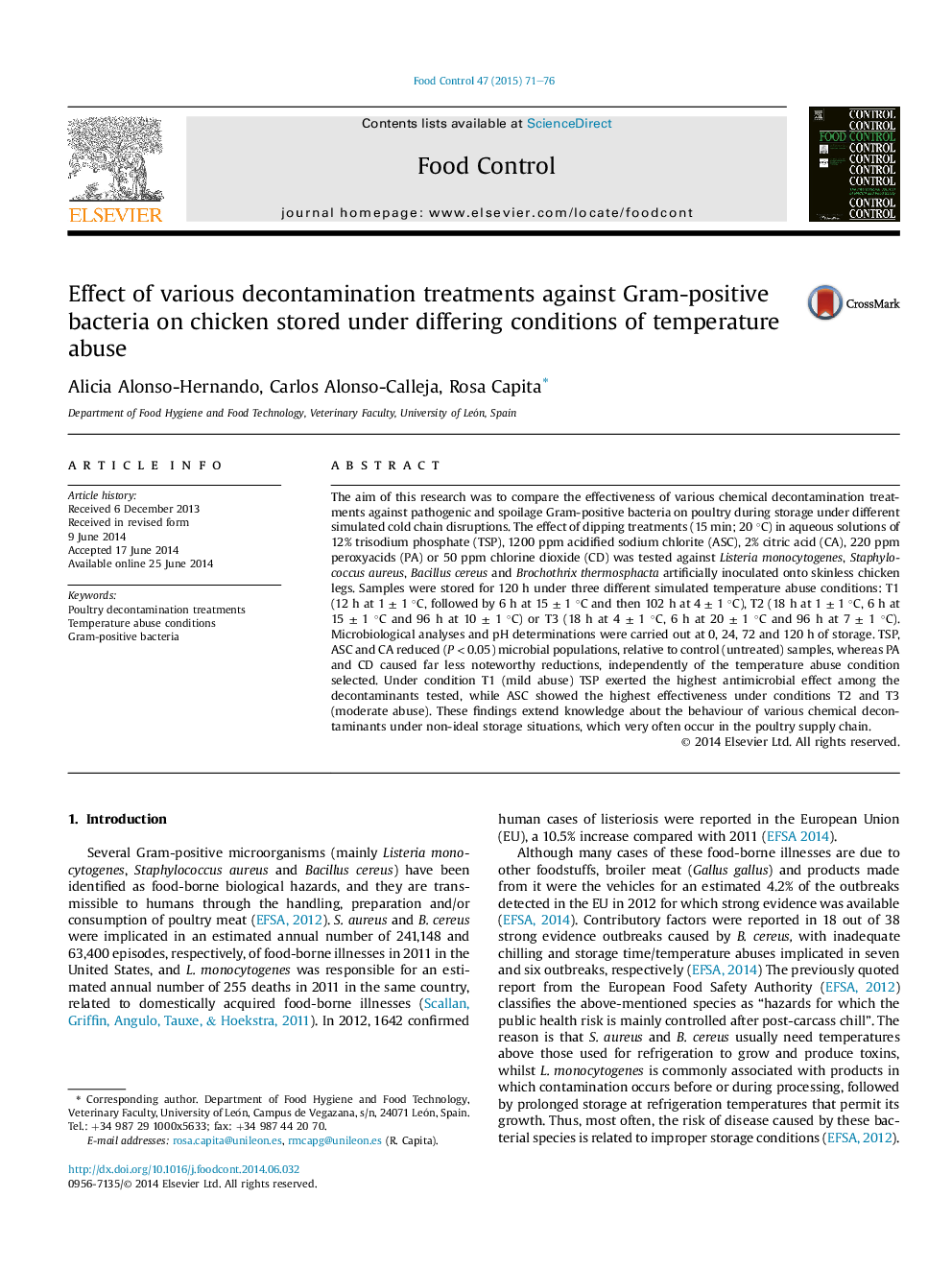| کد مقاله | کد نشریه | سال انتشار | مقاله انگلیسی | نسخه تمام متن |
|---|---|---|---|---|
| 6391323 | 1628415 | 2015 | 6 صفحه PDF | دانلود رایگان |
- The effect of five poultry decontaminants on Gram-positive bacteria was tested.
- After treatment, poultry was stored under different temperature abuse conditions.
- Bacterial counts and pH values were assessed after 0, 24, 72 and 120Â h of storage.
- Trisodium phosphate was the most effective compound in mild abuse conditions.
- Acidified sodium chlorite showed a marked effect under strong abuse conditions.
The aim of this research was to compare the effectiveness of various chemical decontamination treatments against pathogenic and spoilage Gram-positive bacteria on poultry during storage under different simulated cold chain disruptions. The effect of dipping treatments (15 min; 20 °C) in aqueous solutions of 12% trisodium phosphate (TSP), 1200 ppm acidified sodium chlorite (ASC), 2% citric acid (CA), 220 ppm peroxyacids (PA) or 50 ppm chlorine dioxide (CD) was tested against Listeria monocytogenes, Staphylococcus aureus, Bacillus cereus and Brochothrix thermosphacta artificially inoculated onto skinless chicken legs. Samples were stored for 120 h under three different simulated temperature abuse conditions: T1 (12 h at 1 ± 1 °C, followed by 6 h at 15 ± 1 °C and then 102 h at 4 ± 1 °C), T2 (18 h at 1 ± 1 °C, 6 h at 15 ± 1 °C and 96 h at 10 ± 1 °C) or T3 (18 h at 4 ± 1 °C, 6 h at 20 ± 1 °C and 96 h at 7 ± 1 °C). Microbiological analyses and pH determinations were carried out at 0, 24, 72 and 120 h of storage. TSP, ASC and CA reduced (P < 0.05) microbial populations, relative to control (untreated) samples, whereas PA and CD caused far less noteworthy reductions, independently of the temperature abuse condition selected. Under condition T1 (mild abuse) TSP exerted the highest antimicrobial effect among the decontaminants tested, while ASC showed the highest effectiveness under conditions T2 and T3 (moderate abuse). These findings extend knowledge about the behaviour of various chemical decontaminants under non-ideal storage situations, which very often occur in the poultry supply chain.
Journal: Food Control - Volume 47, January 2015, Pages 71-76
